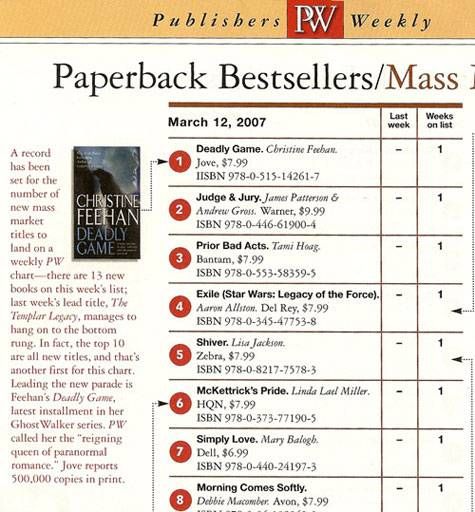
The Problem of Reading for Pleasure
Whenever I meet someone who says they love books, I am quick to ask them to list some of their favorite books of all time. Most are drawn from a familiar pool (The Great Gatsby, To Kill a Mockingbird, Catch-22, and the like) with a couple of more idiosyncratic titles thrown in. In general, the books mentioned are well-crafted, serious works of literary art. This fact stands in stark contrast to something else I’ve been watching closely: the dominance of crime and romance on bestseller lists.
How is it that most people’s favorite books are neither crime nor romance but these are the books that people buy most often?
I think the common answer would be something like “most people enjoy easy, fun reads,” and while I don’t think this answer is wrong, the emphasis is generally misplaced. Most would place the emphasis on “easy” and “fun,” but I think it is the verb “enjoy” that is the most important. For once enjoyment becomes the principal mode of evaluation, a certain kind of experience will tend to be sought again and again. Such is the tyranny of pleasure.
Pleasure’s tyranny has two sources: the fleeting nature of pleasure and the fact that the seat of pleasure resides in the already-known. Taken together, these two characteristics make pleasure the enemy of experimentation, difficulty, and, in the end, enrichment.
That pleasure is fleeting is so well-known that it hardly warrants discussion, but the fact that crime and romance fiction tend to offer the most concentrated doses of readerly pleasure is perhaps not obvious. Readerly pleasure is generally aligned with “page-turning,” the almost compulsive need on the reader’s part to race through the book. Here, consumption is aligned with pleasure: the more greedily you run-through a novel, the more pleasurable it is. This quality of pleasure, the desire for consumption, then generates a need for more: more pages, more murders, more romantic intrigue, more and more and more to the point where sufficiently successful authors cannot fill demand for their work (to the point that some farm out their name to other writers to capitalize on infinite demand).
The second quality of pleasure that is relevant here is pleasure’s preference for the known. This might seem a tautology (how could you desire something you don’t know?) and perhaps it is, but it means that those readers who read primarily for pleasure tend to stay within a certain, limited material.
As it so happens, crime and romance deal in consumption of the familiar directly. Both genres hold out the resolution as the goal of the plot: the evidence and investigation lead to a “solved” crime, the courtship and badinage lead to a coupling. That there is a clear finish-line leads readers to race toward it.
Not only do both genres offer a resolution, but it is a resolution that reaffirms normative values. In crime fiction, the crime is almost always solved. The moral fabric of the world is sutured by having the criminals be captured or at least identified. In romance, the chaos of social life is domesticated by romantic coupling. The idea, so romance would have it, is that the falleness and imperfection of the world could be ignored if only the right paramour is located and secured. Both genres create order out of chaos; they transform the unknowable into the familiar.
These two features of pleasure, consumption and the familiar, can, given the right conditions, lead readers to strip mine certain genres and authors to the point that the phrase “I devoured it” is fairly common when describing the reading experience of certain books that trigger our pleasure centers.
But is “devouring” the experience you want to have? Lest I be accused of snobbery (again), I do not mean to suggest you should only draw your meager gruel from the classics, contemporary literary fiction, Nobel winners, and so on. People who enjoy literary fiction are also subject to pleasure blindness (This blindness can be even more stubborn as it is pleasure masquerading as taste).
But I do want to suggest that a diversity of reading experiences will likely result in a richer reading life. If you only or even primarily read “for fun,” no matter the genre or author, you are leaving the soul-sustaining quality of the reading life on the shelf.
















